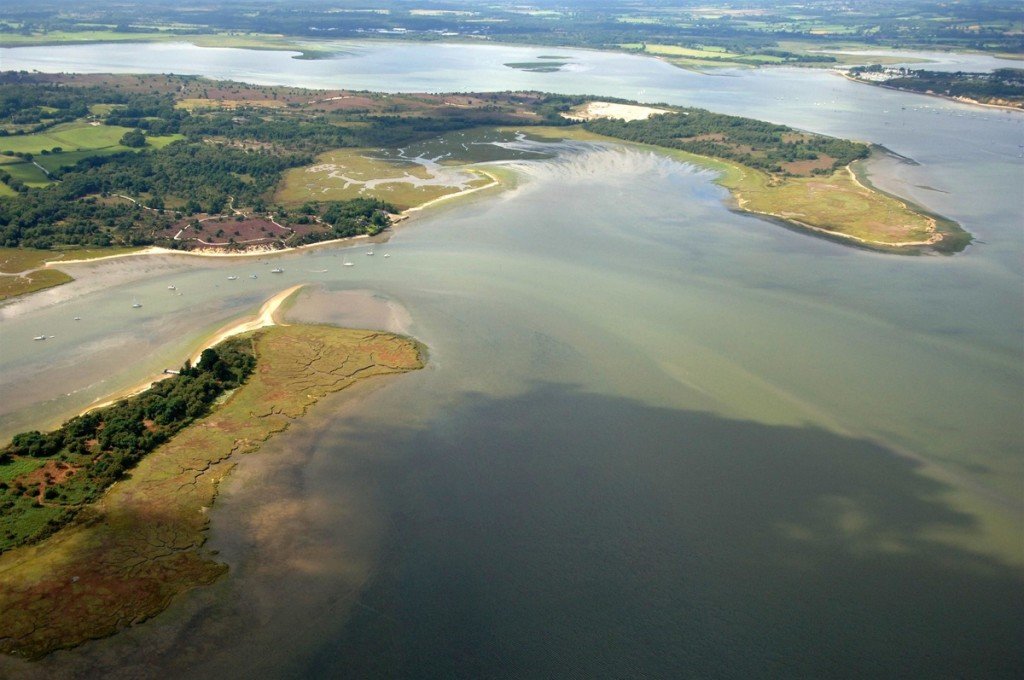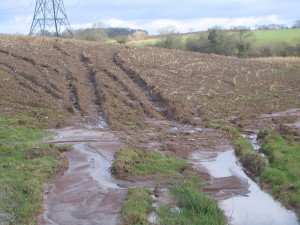UK Government taken to court over unprotected wetlands
19th November 2015
Today WWF-UK, the Angling Trust and Fish Legal take the Government to the High Court accusing it of dragging its feet over the protection of England’s most precious rivers and wetlands.
The Government legally committed to ensuring these sites were healthy by 2015. The three organisations claim that ministers stifled action to address harmful pollution from farms.

David Nussbaum, Chief Executive, WWF-UK, said: “Places like Poole Harbour in Dorset and the River Mease in the Midlands are among England’s natural “crown jewels”. It is shameful that these places as well as cherished species like the kingfisher, Atlantic salmon and avocet have been put at long term risk due to ministerial interference.”

In 2009, the Government publicly committed to using Water Protection Zones (WPZs). They had previously been identified as the most appropriate and cost effective solution to tacking agricultural pollution affecting these specially protected sites alongside voluntary steps by farmers. This decision was set in law after an extensive consultation process.
Investigations by WWF-UK, the Angling Trust and Fish Legal have revealed that, in January 2011, Defra Ministers and the Environment Agency decided to put the brakes on the use of WPZs, except as a ‘last resort’. This was despite overwhelming evidence that other measures to tackle the pollution problem would not be sufficient. The decision was not made public and no WPZs have been put in place to tackle this pollution.
David Nussbaum, Chief Executive, WWF-UK, said: “This was an ideologically driven decision, taken behind closed doors, which contravened the Government’s public position. It also flies in the face of Defra’s own analysis which has repeatedly shown that relying on voluntary action by farmers alone will not solve the problem of agricultural pollution.
“We believe the use of this ‘last resort’ doctrine to evade installing Water Protection Zones has not only been devastating for our protected rivers and wetlands but is also unlawful.
“Worse still, with these specially protected sites continuing to be polluted it is baffling that Water Protection Zones are still not being used as we approach the December 2015 deadline – if this doesn’t count as a time of ‘last resort’, what does?”
Mark Lloyd, Chief Executive of the Angling Trust & Fish Legal, said: “We cannot let the UK regain its title as the dirty man of Europe – urgent action must be taken. Salmon populations have declined by 40% in the last 30 years, and agricultural pollution is one of the most significant causes of this.
“This is why, today, we are seeking the help of the Court to ensure the Government takes the action that is needed to provide these special places with the protection to which they are lawfully entitled.”
Jeremy Biggs, Director of Freshwater Habitats Trust, said:”We welcome the efforts of our colleagues in WWF-UK, the Angling Trust and Fish Legal to ensure that the government acts to protect the freshwater environment. The shocking extent of freshwater pollution requires more concerted action and there is so far little evidence that voluntary measures are leading to any significant improvements. Clearly the approach we take to controlling water pollution needs to change – we hope the legal action will stimulate this urgently needed rethink.”

The Government’s own figures show that getting three-quarters of rivers, lakes and wetlands up to good health would boost the economy by £8.5 billion – through increased tourism, recreation, improved flood resilience and enhanced quality of life. Conversely, agricultural pollution costs the water and tourism industries, and the taxpayer and angling groups, between £758 million to £1.3 billion each year.
Currently only 17% of the rivers in England are in good health, according to the Government’s own statistics.
In October 2015, the European Commission issued legal guidance warning the UK Government of its failures to implement EU water legislation. The EC’s warning may signal the beginnings of formal infraction proceedings which could lead to fines running into the millions of pounds a year.
More information
- Read the WWF briefing on the judicial review
